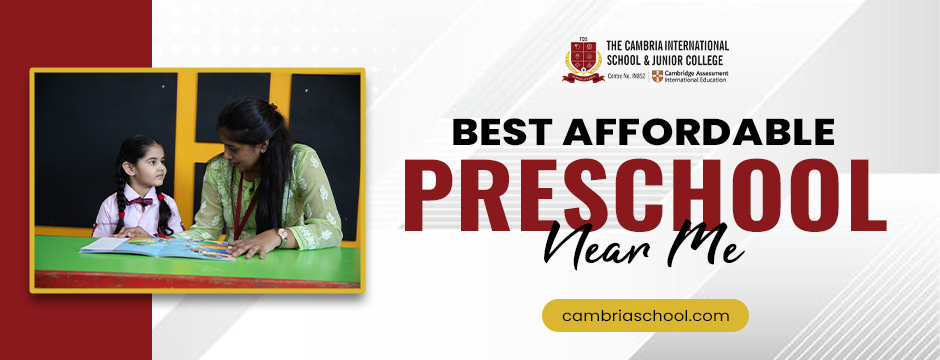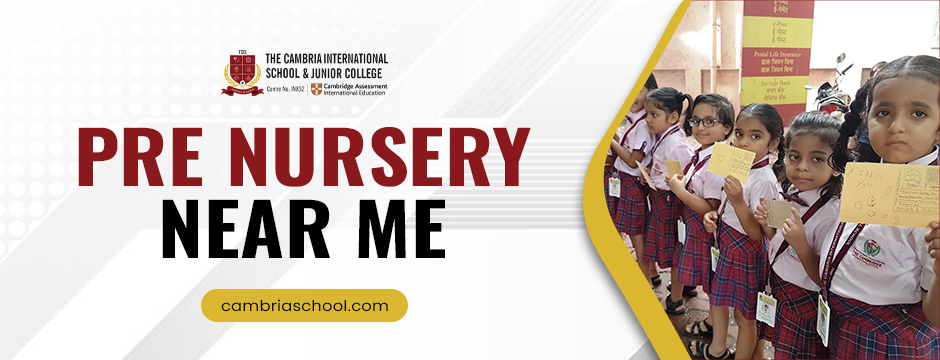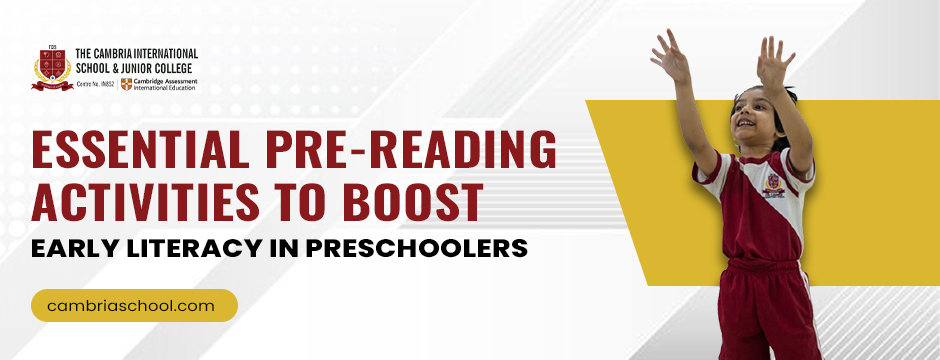Essential Pre-Reading Activities to Boost Early Literacy in Preschoolers
Early literacy is the foundation upon which lifelong learning is built. For preschoolers, cultivating strong pre-reading skills sets the stage for successful reading development and academic achievement. These skills are more than just recognising letters — they encompass listening comprehension, vocabulary, phonemic awareness, print motivation, and storytelling abilities. With the right early exposure and guidance, children can grow into confident readers who embrace the joy of books and language.
Pre-reading activities not only prepare young learners for formal reading instruction but also nurture their curiosity, imagination, and communication skills. In a preschool environment, incorporating fun and engaging pre-reading practices enhances language development naturally through play, exploration, and routine interaction. Whether it’s singing rhymes, exploring picture books, or participating in storytelling, each activity lays a critical brick in the foundation of literacy. In this blog, we’ll explore a variety of essential pre-reading activities designed by the best affordable preschool near me specifically to strengthen early literacy in preschoolers.

Rhyming Games and Songs
Rhyming teaches children how language works. Through repetition and rhythm, kids learn to recognise sounds within words, an essential skill known as phonological awareness. Classic nursery rhymes, fingerplays, and rhyming games allow children to hear similar word endings and anticipate patterns.
Activities like “Down by the Bay,” “Twinkle, Twinkle, Little Star,” and “The Itsy Bitsy Spider” are more than entertainment — they build listening skills, promote speech clarity, and prepare the brain for decoding words later on. Encourage children to invent their rhymes or guess the next word in a rhyme to keep them actively engaged.
Picture Book Exploration
Picture books serve as a child’s first gateway into reading. Exploring books with colourful illustrations and simple text builds print awareness — understanding that words convey meaning and that we read from left to right.
During storytime, point to the words as you read, discuss what’s happening in the pictures, and ask questions like “What do you think will happen next?” or “How does this character feel?” This kind of interactive reading, also known as dialogic reading, strengthens vocabulary, comprehension, and narrative skills.
Letter and Sound Recognition Activities
Introducing the alphabet early helps preschoolers become familiar with letters and their corresponding sounds. But this doesn’t have to be through rote memorisation. Try playful techniques such as:
- Alphabet puzzles and magnets: Encourage letter matching and recognition.
- Letter hunts: Hide letters around the room or outside and have kids search for and name them.
- Sound boxes: Place small objects that start with the same sound (e.g., ball, banana, button for “B”) and discuss the initial sounds.
Learning through play reduces pressure and increases engagement.
Storytelling and Role Play
Imaginative play is an incredible tool for language development. When children act out stories or create their own, they learn sequencing, cause and effect, and descriptive language. Provide props like puppets, costumes, or a storytelling box filled with random objects.
Invite children to retell favourite stories in their own words or make up endings to familiar tales. These activities by the best affordable preschool near me improve memory, understanding of story structure, and expressive language skills — all foundational for reading comprehension.
Print-Rich Environment
Surround children with written words to help them understand the role print plays in everyday life. Label objects around the house or classroom (e.g., “door,” “chair,” “sink”) to reinforce word-picture associations.
Posters, calendars, name tags, and signs also expose children to different types of print. Have a dedicated reading corner with a variety of age-appropriate books and magazines. Even menus, grocery lists, and recipe cards can serve as reading tools when discussed aloud with children.
Name Recognition and Writing Practice
A child’s name is often their first meaningful word. Practice name recognition with games like:
- Name puzzles
- Tracing and stamping their name
- Using their name during songs and chants
Writing also supports reading readiness. Give kids opportunities to scribble, draw, and trace letters. Chunky crayons, markers, and finger-painting help strengthen fine motor skills necessary for future writing tasks.
Listening and Comprehension Exercises
Strong readers are also strong listeners. Simple listening games like “Simon Says” or “I Spy” sharpen attention, memory, and the ability to follow directions. Read aloud regularly and ask open-ended questions with pre nursery near me to gauge comprehension and encourage discussion.
Audio books and storytelling apps can also be used to vary the experience while building listening stamina and vocabulary.

Wordless Books and Visual Literacy
Wordless picture books may seem simplistic, but they are a treasure trove for developing storytelling and observation skills. Encourage children to narrate what’s happening in the pictures, describe emotions, or create dialogue for characters.
This activity nurtures inference-making, sequencing, and vocabulary — all important cognitive skills for reading development.
Interactive Charts and Morning Routines
Daily routines by the top nursery schools near me offer excellent literacy opportunities. Use morning message boards, weather charts, and visual schedules to help children connect words with meaning. Ask them to “read” the schedule with you or find specific letters and words they know.
Interactive repetition of these tasks builds familiarity with common sight words and fosters a sense of independence and confidence.
Library Visits and Reading Culture
Instil a love for reading by making books a valued part of everyday life. Visit libraries regularly and let children choose their books. Introduce them to a wide range of genres, characters, and cultures.
Host reading picnics, storytime nights, or book-themed playdates. The more positive associations children have with books, the more motivated they’ll be to read independently.
Wrapping Up
Pre-reading activities aren’t just educational — they’re joyful opportunities to bond with children and ignite a love for language. From rhymes and storytelling to alphabet games and picture books, each experience plants a seed for future literacy success. At The Cambria International School, our best affordable preschool near me believes early childhood education should be playful, intentional, and literacy-rich. Our dedicated educators incorporate engaging pre-reading strategies into everyday learning, ensuring every child receives the tools they need to thrive as a reader and a thinker. By blending creativity with proven techniques, we empower preschoolers to become confident communicators and lifelong learners. Explore our programs today and give your child the gift of a strong literacy foundation.

